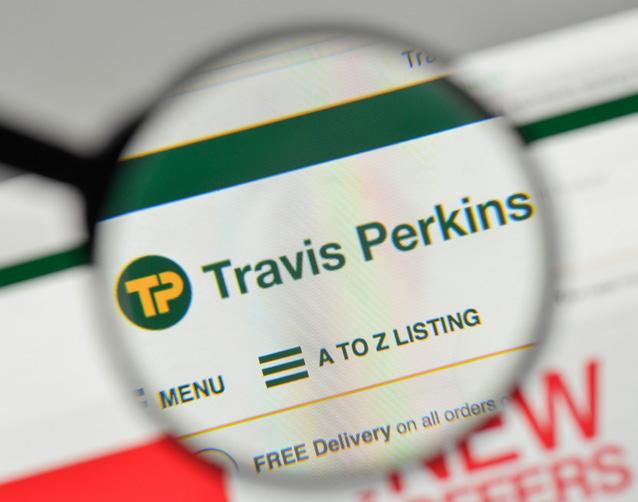
22 minute read
NATWEST
Some cautious 17 June 2020 optimism
The new NatWest UK Small Business PMI® survey shows signs of optimism as downturn in business activity eases, but small firms are especially cautious about outlook NatWest UK Small Business PMI ®
The new NatWest UK Small Business PMI® survey has identified a clear improvement in the business environment since April, with the downturn in priHowever, small businesses are more cautious about the year ahead outlook than their peers in all three main sectors covered by the new survey, prompting NatWest to unveil a Small Key Findings • New survey on small businesses shows signs of optimism with slower downturn Slide in business activity eases, but small firms are especially cautious about the outlook vate sector output moderating from Business Taskforce to support its in business activity during May the record drop at the peak of the coronavirus disease (COVID-19) outbreak. customers through the next phase of recovery. • Widespread use of furlough scheme for small firms helps Signs of a turnaround were highlighted Key findings retain staff
UK Small Business Activity Index by a rise in the supporting Small Business Activity Index – which monitors output at private sector companies • Small firm’s expectations lag behind those reported by larger firms Signs of a turnaround as downturn in activity slows during May with 1-49 employees in the services, construction and manufacturing sec• NatWest unveils Small Business Taskforce to respond to findings Widespread use of furlough scheme helps retain staff tors – from 14.6 in April to 26.3 in May. and support customers with next May ‘20 Nonetheless, the index remained bephase of recovery Business expectations lag behind those reported by larger firms 26.3 low the 50.0 no-change value and signalled the second-fastest drop in business activity since the start of the Employment trends among small businesses have been more resilient This new NatWest UK Small Business PMI ® is a monthly index designed to monitor the progress and challenges faced by small enterprises in the manufacturing, services and construction Apr: 14.6 series in 1998. Small manufacturers than elsewhere in each of the main sectors as the UK economy begins to emerge from the public health emergency. recorded the slowest drop in output, followed by service providers, while those in the construction sector postcategories of activity monitored by the survey. However, survey respondents experiencing a slump in reveMay data from the NatWest UK Small Business PMI ® point to a clear improvement on the situation seen during April, with the downturn in private sector output moderating from the record pace ed the fastest pace of decline. nues overwhelmingly commented on reported at the peak of the coronavirus disease (COVID-19) outbreak. 50 60 Dec ‘19 - May ‘20 Small businesses continued to experience a severe shortfall of new work in May and reported widespread business closures across their supply chains, despite a boost as some parts use of the government’s job retention scheme to help keep on staff. Downturn in service sector business activity eases from Signs of a turnaround were highlighted by a rise in the All-Sector Small Business Activity Index – which monitors output at private sector companies with 1-49 employees – from 14.6 in April to 26.3 in May. Nonetheless, the index remained below the 50.0 no-change value and signalled the second-fastest drop in business activity since the start of the series in 1998. Small manufacturers 40 of the UK economy began to reopen with social distancing measures. April's record recorded the slowest drop in output, followed by service providers, while those in the construction sector posted the fastest pace of decline. 20 30 Difficulties sourcing materials, restricted transport capacity and the need to find alternative suppliers all May data highlighted that small service sector companies remained under severe strain, despite a boost in some areas as parts of the economy Small businesses continued to experience a severe shortfall of new work in May and reported widespread business closures across their supply chains, despite a boost as some parts of the UK economy began to reopen with social distancing measures. Difficulties sourcing materials, 10 UK overall placed a particularly strong burden on small business costs in May, especially in the manufacturing and construction sectors. began to reopen with social distancing measures. At 25.9, the Business Activity Index was well below the 50.0 no-change mark and the second low- restricted transport capacity and the need to find alternative suppliers all placed a strong burden on small business costs in May, especially in the manufacturing and construction sectors. Employment trends among small businesses have been more resilient than elsewhere in each of the main categories of activity monitored by the survey. However, survey respondents experiencing a slump in revenues overwhelmingly commented on use of the government’s job retention scheme to help keep on staff. Small businesses are much more cautious about the year 28 SURREY BUSINESS MAGAZINE ahead outlook than their peers in all three main sectors covered by the survey. A dynamic small business sector is undoubtedly a pre-requisite for growth in the UK economy, and the latest PMI results illustrate the urgent need to help these firms adjust to the 'new normal'.
est since the start of the survey in 1996. Around 60% of small UK service providers reported a drop in business activity during May. The proportion recording a fall in output was down from 78% in April, but it exceeded the equivalent figure for large service sector companies in May (49%). On a more positive note, the percentage of small service sector firms signalling activity growth in May (11%) was up from just 6% in April.
Small manufacturers record softer output drop than in April
Latest data indicated that small manufacturers fared better than companies of the same size in the service and construction sectors during May. A number of firms commented on a phased return to work with production schedules adapted for social distancing measures. That said, the index measuring manufacturing output at small businesses remained well below the 50.0 no-change value, with the rate of decline but now exceeding that seen across the sector as a whole. Around 59% of small manufacturers reported lower production in May, while only 19% signalled an expansion. The proportion signalling a rise in output was up from just 12% in April.
Sharp construction sector downturn continues amid rapid drop in new work
May data pointed to sustained weakness across the construction sector, but a gradual restart of work on site with social distancing measures helped to moderate the overall rate of decline. However, material shortages held back smaller construction firms leading to them showing a faster drop in business activity than larger firms during May, which reversed the pattern seen in the previous month. Survey respondents often cited a lack of new opportunities to tender and project cancellations amid the COVID-19 pandemic.
COMMENT
Andrew Harrison, NatWest's Head of Banking
“This survey demonstrates the support that small businesses need as they adapt to a very different world. That’s why we’re establishing a Small Business Taskforce with a range of partners, including the British Chambers of Commerce to ensure that we can play our part in supporting our customers and by extension the UK economy. We know customer behaviour is going to change rapidly as a result of the crisis and we want to do everything we can to be here for our customers when they need us most.”
Stephen Blackman, Principal Economist, NatWest
“During crises, surveys signal mood as much as activity. And the slight uptick in May’s Small Business PMI tells us that, at least, the worst should be behind us. As the survey highlights, the furloughing schemes have been instrumental in limiting the scale of job losses across the UK. “The question is, what happens as these schemes unwind? And here the news is mixed. More than a third of small business in services expect a further reduction in activity this year. Yet, fewer firms now anticipate a reduced workforce than they did in April and there’s even tentative signs, via VAT reports, that new businesses are starting; though modestly, it must be stressed. It’s worth noting that most of what is captured in this survey occurred before further easing in lockdown measures. Directionally, this is just what we hoped to see. It now needs to accelerate.”
METHODOLOGY The NatWest South East PMI® is compiled by IHS Markit from responses to questionnaires sent to South East companies that participate in IHS Markit’s UK manufacturing and services PMI surveys.
Help for Social Enterprises
NatWest charity launches £1m grant fund to help social enterprises survive coronavirus crisis
• £1 million Coronavirus Response Fund launched by Social & Community Capital; an independent charity funded by NatWest • Grants worth between £5,000 and £50,000 available for social enterprises, charities and community business that employ people from vulnerable or disadvantaged groups • Funding will help bridge income gap so organisations can survive the current crisis
Social & Community Capital (S&CC), an independent charity launched by survive the crisis and continue to have NatWest in 1999 to support social a positive impact in their communienterprises and community businessties. es, has today announced a £1 million Coronavirus Response Fund to help Alison Rose (pictured on the cover organisations that have suffered a of our sister title Dynamic), CEO at loss because of Covid-19 lockdown NatWest Group, said: “Many social enrestrictions. terprises, community businesses and charities that form an integral part of Grants between £5,000 and £50,000 our local communities have unfortuare being offered to organisations nately seen their incomes affected by across the UK that employ people the ongoing pandemic, and we want to from vulnerable or disadvantaged do what we can to offer our support. groups. This funding aims to bridge These grants will help champion the the income gap so that organisations vital work that these businesses and charities do, so that they can continue to make a difference to those that need it most.”
Megan Peat, CEO at Social & Community Capital, said: “We know that people and families rely on the great work of local charities and community businesses, but we know that no one has been left unaffected by this devastating pandemic. This is why we want to help those organisations that employ people from vulnerable or disadvantaged groups and who have suffered a loss of trading income with our grants so that they can continue to have a positive impact in their communities.”

Applications for the NatWest Social & Community Capital Coronavirus Grant Fund will open at 9am on Monday 22 June. Full information on the grants, including the application form and how to apply, are available online at www.natwest.com/scc
Join our ‘Looking ahead’ webinar series

Many businesses are focusing on their immediate issues, on doing what they can to survive this unprecedented period of mass uncertainty. However, it’s still important to remember to pause, breathe and look up from the current circumstances at the bigger picture. Where some see challenges, others see opportunity, adaptability and innovation.
The aim of our ‘Looking ahead’ series is to help your business achieve a brighter future with practical guidance and tips. Details of the webinars from this series are below:
Looking ahead... for the rest of this year 24 June 2020 | 10:00am - 11:00am • Sourcing funding • Cashflow management • Employee welfare/resilience
Looking ahead... to 2021 22 July 2020 | 11:00am - 12:00pm • Finding your entrepreneurial spirit and opportunities and innovation in chaos/crisis • Exploring routes to market
Looking ahead... to the next 3-5 years 26 August 2020 | 12:00pm - 13:00pm • Focusing on rebuilding, reviving and stabilising your finances • Funding • Corporate finance • Trading internationally Looking ahead... to the future with purpose 23 September 2020 | 9:00am - 10:00am • The importance of ‘purpose’ and reviewing your business’ purpose • Sustainability • Corporate Social Responsibility
Looking ahead... retaining agility - rain or shine 28 October 2020 | 10:00am - 11:00am • Funding reserves, resilience and contingency planning, crisis planning/management • Importance of looking for opportunities in crisis
For more information on our Looking ahead webinar series and to register to join: Visit: www.krestonreeves.com/webinars Email: events@krestonreeves.com
THE POWER OF The People
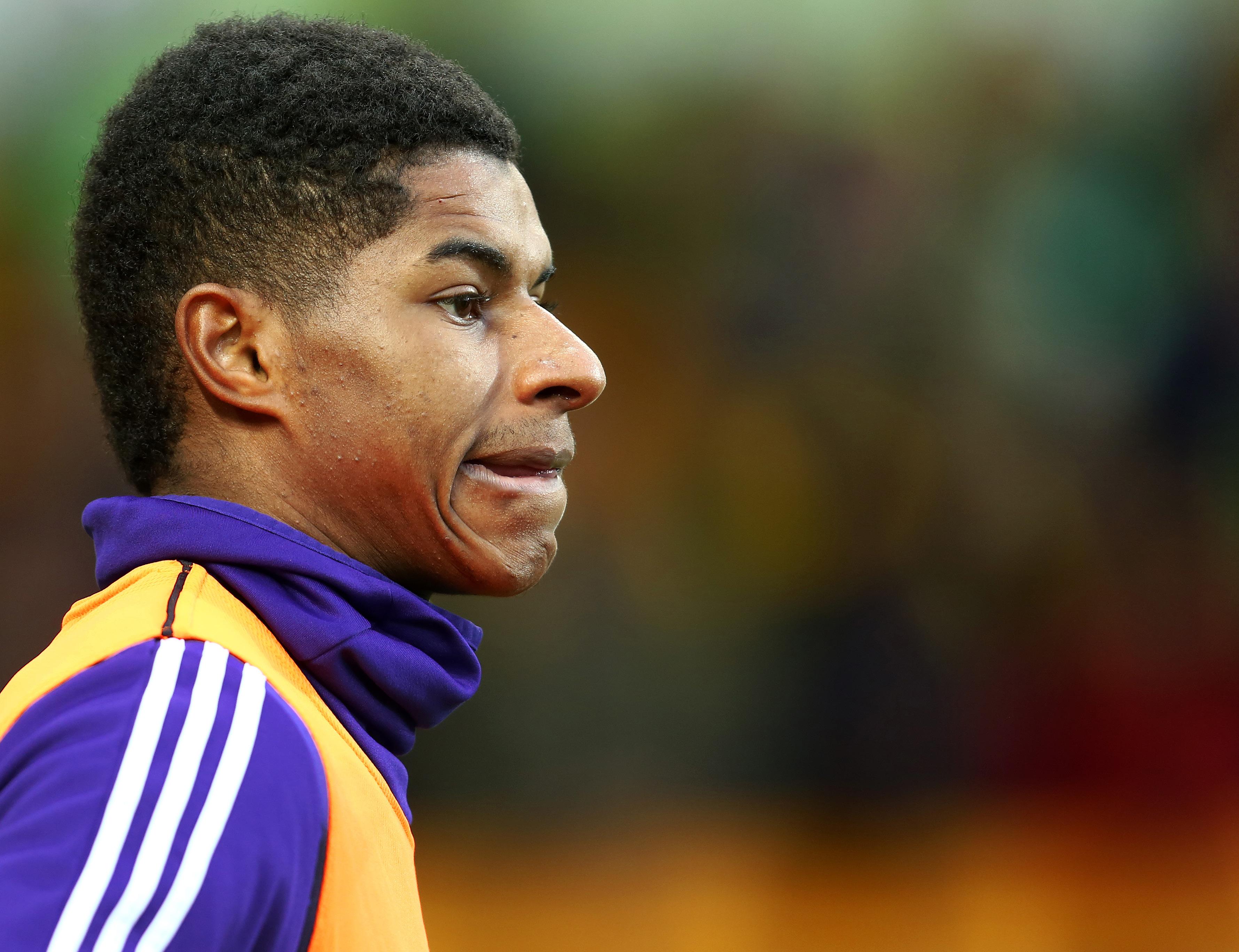
How a young footballer used his celebrity to change government policy By Maarten Hoffmann
IIt was not long ago that it would have taken a titanic battle, months of high level networking and a contact book from heaven to change government policy. Times have changed and now all it takes is a social media campaign, fronted by a popular figure and hey presto, policy is changed.
It was on March 19th that Marcus Rashford first went on social media to highlight his fears about the impact that shutting schools would have on disadvantaged children.
He may be a high-profile Premier League footballer now, but it is only 11 years since the Manchester United and England striker needed breakfast clubs and free school meals to supplement what his mum could provide. She was the head of a single-parent family of five children, working fulltime on the minimum wage.
When Boris Johnson stood before the nation on the evening of March 18th to tell the country schools had to help combat the spread of Covid-19, Rashford immediately knew what that would mean. While most parents wondered how they were going to manage childcare, Rashford wondered how kids growing up as he had would get fed.
"Guys, across the UK there are over 32,000 schools. Tomorrow all of these will close. Many of the children attending these schools rely on free meals, so I've spent the last few days talking to organisations to understand how this deficit is going to be filled," he wrote.
The start of the six-post thread received 42,500 likes on Twitter. Just under 13 weeks later, Rashford posted again. A rather simpler message. "I don't even know what to say." It received 709,000 likes.
In between, Rashford had helped supply the equivalent of three million meals. He had highlighted the damage caused by the 'invisible issue of food insecurity'. He had received messages of support from Liverpool and Manchester City. He had changed government policy.
As Rashford returns to his day job, it
is worth understanding why, at the age of 22, he has been so willing to step out of his comfort zone. It is worth understanding how he has ended up so revered and admired for his work away from the football field.
Rashford articulated his back story in the emotive letter he sent to MPs on Monday. "As a family, we relied on breakfast clubs, free school meals, and the kind actions of neighbours and coaches," he wrote. "Food banks and soup kitchens were not alien to us; I recall very clearly our visits to Northern Moor to collect our Christmas dinners every year. It's only now that I really understand the enormous sacrifice my mum made in sending me away to live in digs aged 11, a decision no mother would ever make lightly.”
For one of the most recognisable sport stars in the country, this was a brave move. It opened the door on a life Rashford could, if he wished, now leave far behind as he is currently paid £200,000 per week. He is not far into his career but he has already earned enough to ensure none of his family need worry about their next meal ever again. Yet that memory in itself does not tell the whole story.
It is informative to hear of the time Rashford spent, already then a highly-rated academy hopeful, kicking a ball about with his friends at public coaching sessions set up close to his home by the Manchester United Foundation.
By that time, his promise as a footballer was already evident. If his coaches in the United youth set-up had known of these impromptu sessions, they would almost certainly have been
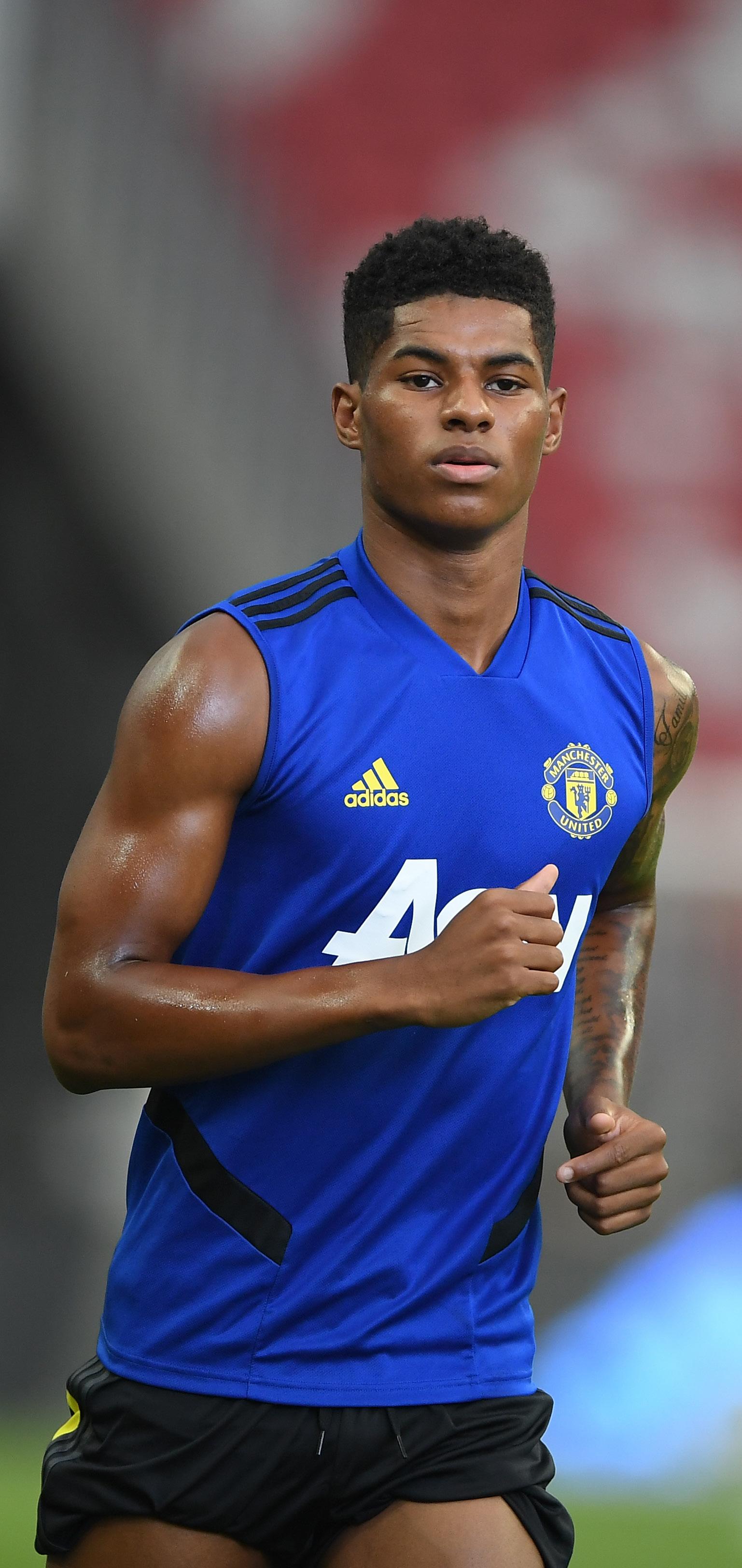

stopped, in just the same way as then manager Louis van Gaal would have recoiled had he known Rashford went for a kick-about with mates at a Power League complex within hours of making his United first-team debut in 2016.
"There is an argument that these experiences humanised him more than would have been the case if he had just gone through the system," says a club source, who has watched Rashford's development from an early age. "He has a strong family, who are very down to earth. His mother is a great role model. It is part of what keeps him grounded.”
Rashford's willingness to help out with the wider community has been obvious for some time. When volunteers were asked to attend Foundation events, Rashford was amongst those who regularly responded. It was soon obvious he was able to communicate with youngsters and make them feel at ease.
"Probably because of his background, there was an empathy and a rapport which the kids really responded to. Kids loved being in his company and Marcus seemed happy to be there. He still does," says the United source.
This interaction should not be dismissed as insignificant. For as Rashford's career was progressing rather faster than many imagined, from England's Under-16 team in November 2012 to selection for Roy Hodgson's Euro 2016 squad threeand-a-half years later, he never lost touch with his roots. "After he made his debut, we asked if he would come back to the school," says Simon Pyne, a year three teacher at Rashford's old school, Button Lane Primary in Northern Moor.
"We were having a school disco one night. I was in the office talking to one of the administration staff when a group of lads appeared at one of the doors and buzzed to see if they could come in because they were all
Marcus and his mum former pupils. We didn't recognise any of them at first but Marcus was there. "He walked into the disco and all the kids were there. He was brilliant. He chatted to them, did a quick question and answer session with them and had photographs taken. He was absolutely amazing.”
Rashford has donated to the school. On another Christmas visit, he handed over £1,000 so the school could provide the children with a selection box each to take home. His ties to the area are so deep he has a tattoo of the house he lived in at that time on his stomach. But it was an unrelated, unfortunate event last August that focused Rash
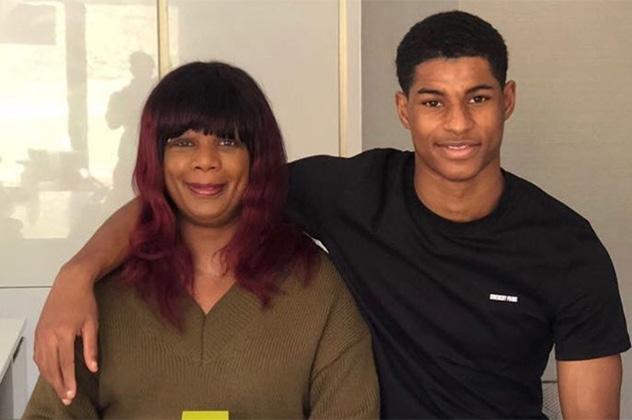
On England duty; Marcus Rashford, Danny Welbeck and Trent Alexander-Arnold

ford's mind on what more he could do.
Rashford missed a penalty in a home defeat by Crystal Palace. The fall-out included a number of racist posts aimed at him on social media. Days earlier, his United team-mate, Paul Pogba had been similarly abused. Those close to Rashford said he had already started to become more inquisitive about how the public perceived him. After the Palace experience, he thought 'this isn't OK' and started to take more control.
As a child at school Rashford had helped fill gift boxes to give to those in need. He remembered this. At Christmas 2018, he personally delivered items including thermal underwear, gloves, toothbrushes and toothpaste to homeless people in Manchester. Twelve months on he partnered with Selfridges for a similar campaign. The gesture was well received. But for Rashford, it was not enough.
In January, he suffered a back injury against Wolves. It was feared it might end his season. Rashford and the people who work closely with him began to investigate suitable partners to help deal more comprehensively with the social issues affecting his home city. The work was still in its infancy when it became obvious what a devastating toll Covid-19 was going to take. By the time the prime minister announced schools would shut, Rashford had told FareShare he wanted to make a donation and that he wanted to help.
A nationwide charity, FareShare collects surplus goods from the food industry. It might be from manufacturers or from farmers. It might be because orders have been cancelled, or mistakes in packaging have been made. Through their partners, Fare Share then divert the food to charities, including lunch clubs for the elderly or the kinds of breakfast club Rashford used to attend.
"Those sorts of organisations are about 25% of the 11,000 organisations FareShare supports across the UK," says the charity's commercial director Alyson Walsh.
"These are children who have potentially not eaten since the previous day's free school meal, so getting breakfast to them is massive. Marcus knew about this because he had been to them.” Rashford's elevation to national hero had begun.
In his interview with the BBC after Johnson's staggering U-turn, Rashford boldly declared: "I don't want this to be the end of it because there are
With England's best known waistcoat model
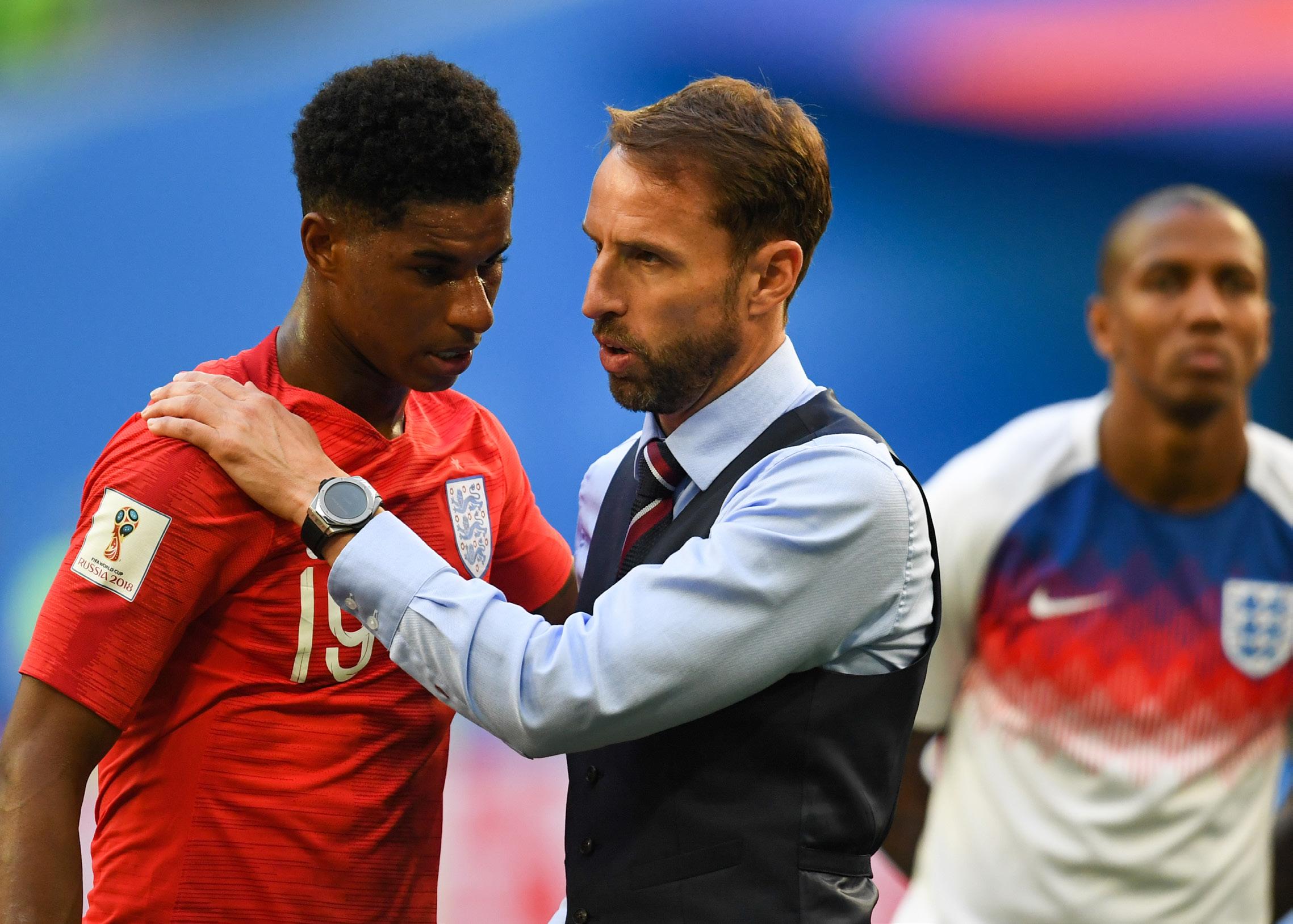
more steps that need to be taken. People are struggling all year round, so we need to learn more about the situation they are in and how we can help them best.”
Manchester United manager, Ole Gunnar Solskjaer said on Thursday that Rashford's impact has been "more important than any game of football". But the reality is Rashford does play football for a living.
He does have a long-term desire to one day establish his own foundation, so he can be hands on in developing projects that would benefit the community, but for now, football must take priority again. And until the end of the European Championships in July 2021, Rashford is going to be quite busy. So, for him, it is a question of identifying the projects and situations where he can help.
On June 1st, that meant a powerful social media statement in support of the Black Lives Matter movement. Three days later it meant standing up for an autistic black boy shown in a video being bullied by two white youths in a park.
Since suffering racism himself, Rashford does not see why he should step away from subjects he cares about. As the past few days show, far more will embrace him for it than reject him.
And, if they do, he reasons he doesn't want that kind of person attaching themselves to him anyway.
Those at FareShare believe Rashford taking a stand can help drive lasting change, beyond what has already been achieved.
"Food insecurity is an invisible issue," says Walsh. "People talk about raising money for illnesses they have been affected by. There is not so much conversation around 'I am raising money for a Foodbank because my sister skipped lunch three times last week'.
"People don't talk about it because it can be a reflection on their circumstances. But the fact Marcus is doing so, not only shines a light on it, it also adds credibility because he has benefited from these clubs and seen how they work.”
Times are certainly changing and, in this instance, for the better.
national news
MILLION MISSED
More than one million people have fallen through cracks in government schemes designed to support them during the coronavirus crisis, MPs say. The Treasury Select Committee called on ministers to plug gaps in the schemes to fulfil the government's promise of "doing whatever it takes". Freelancers and recent employees are among those who cannot access support. The Treasury said the schemes protected millions of jobs and livelihoods. But the committee's interim report, which was unanimously agreed by members, said it was still not enough. "The Treasury's interventions have been welcomed by many but rolling out financial support at pace and scale has inevitably resulted in some hard edges in policy design and some critical gaps in provision," the committee said. "The government must assist these people if it is to completely fulfil its promise to do whatever it takes to protect people from the economic impact of coronavirus.” An area that really needs to be looked at are Company Directors who pay themselves through dividends rather than salary, who have been totally ignored.
Moral Compass rediscovered

IIkea has said it is planning to repay salaries paid by governments around the world under furlough schemes. It is set to repay nine governments, including the US and Ireland. However, it does not include the UK as although the furniture chain furloughed 10,000 UK workers it did not claim back their salaries from the government. Other firms are also refunding furlough pay, with Games Workshop and the Specta
tor magazine both saying they will repay the UK government.

The best portion of a good man’s life is his little nameless, unencumbered acts of kindness and of love.
WILLIAM WORDSWORTH - POET
Construction Woe
Travis Perkins, the builders’ merchant, is cutting 2,500 jobs in the UK, almost a 10th of its workforce, and closing 165 stores as it expects weaker demand for materials in the next two years in the wake of the Covid-19 pandemic. The company is the UK’s largest distributor of building materials and owns a number of chains including the DIY retailer Wickes and Toolstation, with 2,154 branches around the country. Travis Perkins has started a consultation of its staff on the job cuts and the branch closures, which will reduce its network by 8%. The job losses will also affect non-store roles in distribution, administrative and sales, and reduce its 30,000-strong workforce by 9%
